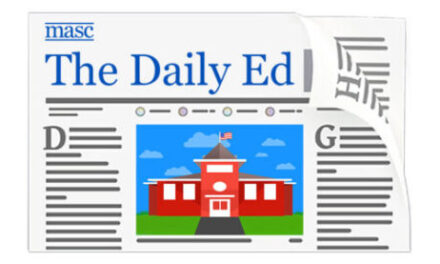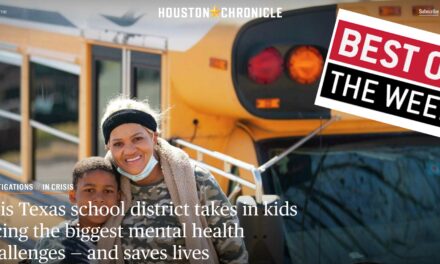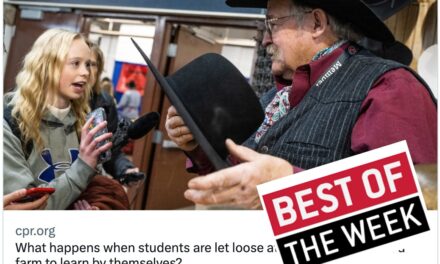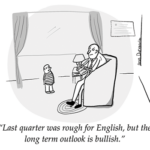Newsletters are everywhere these days, for lots of good reasons. But which ones should you be reading?
By Alexander Russo
Once considered hopelessly passé, email newsletters are all the rage again. At this point, pretty much everyone has one. And newsletter editors are considered increasingly important parts of many newsrooms.
But only a handful of newsletters might be considered essential. As Columbia Journalism Review contributor Adeshina Emmanuel noted in a recent roundup, “all newsletters are not created equal.”
This is particularly true if you’re an education journalist. There are just two newsletters aimed directly at what education reporters and editors need to know.
That doesn’t mean there aren’t some other useful, inspiring, and important newsletters that you should consider.
Here’s an explanation of why newsletters are on the rise, along with roughly 15 you should know about and the essential handful listed at the end.*
Follow @thegrade_ to learn more about media coverage of education issues. Sign up for the newsletter here: http://eepurl.com/cFwNOb .

Yes, this is what some education newsletters used to look like.
A long, long time ago, email newsletters were a big deal in education circles. These technological dinosaurs – the Daily Report Card from the National Education Goals Panel, the Education Newsblast from PEN, and of course This Week In Education (hosted by EdWeek and then Scholastic) – were considered important among education professionals. Email was pretty much all we had.
Most of those early stalwarts are long gone or much-diminished, replaced by blogging, RSS feeds, Facebook, and Twitter. But new ones have come to take their place, for reasons that are easy to figure out.
For readers, newsletters provide an enormous amount of highly curated information in a single place. Reading them can feel like reading an old-fashioned letter. It’s delivered right to your inbox. No need to set up lots of Twitter lists or monitor your Facebook feed all the time.
For journalists and outlets, newsletters turn out to be a great way to engage with devoted readers and provide additional tidbits of information not otherwise published online or shared out on social. They’re also opened and read pretty widely. In a few instances, newsletters can actually bring in revenue. Perhaps most of all, they can be fun to put together, like an old-fashioned mixtape or Spotify playlist where you get to include some of your own songs.
Here are roughly 15 great email newsletters that you should consider reading if you work in or around K-12 education news, with the most essential five listed at the end:
EDUCATION

Education-focused newsletters are the meat and potatoes of newsletters, helping keep you informed on what’s being covered, by whom, and how:
POLITICO: Politico’s Morning EDU has a lot of fans for good reason. From original tidbits at the top to other folks’ reporting at the bottom, there’s lots in there. The free version usually arrives by 10. Other options in the morning roundup race include RealClear Education, The 74’s TopSheet (see above). I’m told that the ECS Ed Clips Brief arrives first (at 4 AM EST), followed by the EdWeek Update at 5.
CHALKBEAT: Chalkbeat has a slew of newsletters focused on the geographic areas it covers. Lots of people swear by the New York version, but my favorites are the new national newsletter, which includes a bit of everything, and the Detroit Week In Review, which has that obsessive quality that you want in in a district-focused newsletter about an area you might not otherwise know much about.
THE 74: Still relatively new on the block, The 74 includes both the first-thing morning news roundup called TopSheet, a daily newsletter that comes out shortly later, and – its newest and most exciting offering – Edu-Clips, a roundup focused on the nation’s 12 largest school districts which might get its own newsletter soon (crossed fingers).
HACKED EDUCATION WEEKLY NEWS: This newsletter, by current Spencer Education Journalism fellow Audrey Watters, is deeply focused on the intersection of education and technology. And it’s deeply skeptical about how those things usually work together – sometimes overly so, I think. But it’s still extremely helpful and impressive. (For a totally different kind of weekend read, check out the NPR education newsletter, which comes out on Sunday and is blissfully brief and so gentle it reminds me of CBS’s “Sunday Morning” TV show.)
THE GADFLY: The Fordham Foundation’s Education Gadfly Weekly is now in its 17th year. But a relatively new “what we’re reading” section is a welcome addition. And the newsletter also includes a weekly podcast, something few others manage to pull off.
EDWEEK: Speaking of EdWeek, I’m told by reliable sources like teacher blogger Larry Ferlazzo and Patrick “Eduflack” Riccards that the main one and the Teacher Update newsletter are the most essential for the majority of people.
JOURNALISM
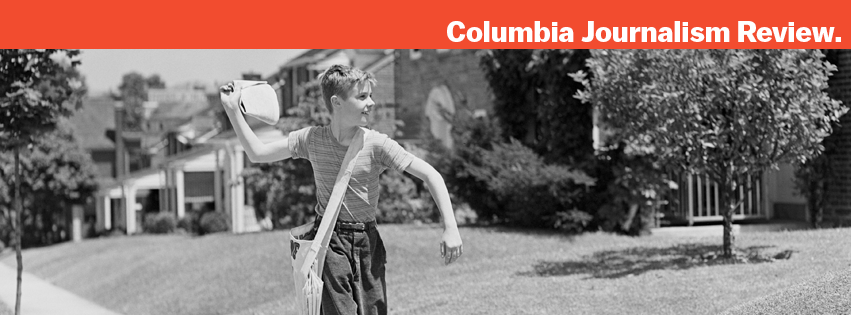
Columbia Journalism Review
There are just two email newsletters – from EWA and The Grade – that focus directly on the intersection of journalism and education:
EWA BLAST: Full of information about key education issues, advice for journalists, and examples of members’ work, the Education Writers Association email blast is a must-read for education reporters and those who care about them. But first you have to become a member. Start here.
BEST OF THE WEEK: This weekly roundup from The Grade includes top education stories, media hits and flubs, along with jobs and award deadlines. Check out last week’s edition here. Sign up here.
But there are several other good newsletters to help you keep up with best journalism practices and media trends:
COLUMBIA JOURNALISM REVIEW: A publishing partner with The Grade with at least two former teachers on staff and a strong interest in education journalism, CJR puts out a handful of helpful newsletters. My favorite is the state- and local-news focused United States Project.
NIEMAN: The Harvard-based center run by a former education reporter features a bunch of useful newsletters, including one called Nieman Storyboard , which focuses on storytelling skills, and the Journalism Lab, which offers a daily or weekly version.
POYNTER: Poynter’s own Local Edition includes a mix of perspectives on where local news coverage is headed next. Jim Warren’s Morning Media Wire occasionally covers education journalism has been kind enough to pick up the occasional item from The Grade.
Follow @thegrade_ to learn more about media coverage of education issues. Sign up for the newsletter here: http://eepurl.com/cFwNOb .
INSPIRATION
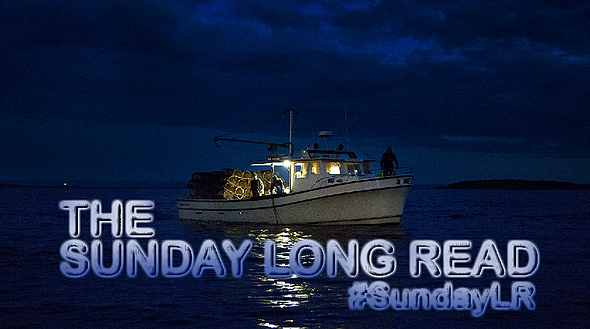
As you can see, great newsletters don’t look like all that much.
These newsletters aren’t specific to education or journalism but they are perhaps most important of all because they will help you stay informed and inspired by great journalism on all topics:
LOCAL MATTERS: Local Matters: This weekly roundup of local news coverage sponsored by IRE is relatively new to me, and especially appreciated these days. There’s often an education-related item – usually something very, very good. It’s super short and easy to read. This is probably my top recommendation of all, if you don’t already subscribe.
RECOMMENDED READING: Recommended Reading: Conor Friedersdorf’s weekly roundup of pieces (formerly known as Best of Journalism) is one of the most well-known newsletters out there. A relative newcomer along similar lines is the pretty amazing Ann Friedman Newsletter, which almost always gives me something to smile about, and looks great, too.
NEXT DRAFT: Unusually good given that it’s a daily roundup, Next Draft is on nearly every “best newsletters” list for reasons that will become obvious once you’ve signed up. On bad days, I find myself checking my inbox at around 4, knowing that Pell will help make sense of it. (If daily is too much for your brain, try The Sunday Long Read, a pretty amazing collection of great nonfiction and journalism.)
There are also a few newsletters that dive deep into a particular policy area such as Migratory Notes, which New America’s Conor Williams describes as “comprehensive and reliably interesting,” including an overlap with education that’s “more than you might imagine.” A few other recommendations provided by Poynter’s Kristen Hare include Happening at Home, a newsletter dedicated to curating great local journalism from two U.S. cities each week. (Rochester and Reno, for example.) The 74’s Steve Snyder says that Axios’ Future of Work newsletter is helpful and inspiring.
Follow @thegrade_ to learn more about media coverage of education issues. Sign up for the newsletter here: http://eepurl.com/cFwNOb .
For me, the best newsletters are usually weekly rather than daily, are generous about sharing others’ work, and give me links and tidbits I haven’t seen before. They’re not so busy that they make my eyes hurt — or so long that Gmail cuts them off.
If you had to boil it down to just a handful, the essential five are Local Matters, Sunday Long Read, Politico, my own Best of the Week, and the soon-to-be Edu-Clips from The 74.
What’s missing? What newsletters shouldn’t be on this list? Let me know what you think. Perhaps there are some other great education/journalism newsletters out there that I don’t know about — topics, perspectives, and insights not seen here. This group certainly has some obvious holes.
Site news: Next week’s column focuses on the best education journalism of the year.
*Disclosures: Kind folks who have funded The Grade may well have been involved in funding some of the news outlets whose newsletters are mentioned here. Also: My original newsletter, This Week In Education, was sponsored and hosted for a time by EdWeek. I’ve written freelance pieces for Education Next, part of the Fordham empire. The 74 now includes LA School Report, the Los Angeles-focused education news site I helped found and once edited.
ABOUT THE AUTHOR

Alexander Russo
Alexander Russo is founder and editor of The Grade, an award-winning effort to help improve media coverage of education issues. He’s also a Spencer Education Journalism Fellowship winner and a book author. You can reach him at @alexanderrusso.
Visit their website at: https://the-grade.org/


